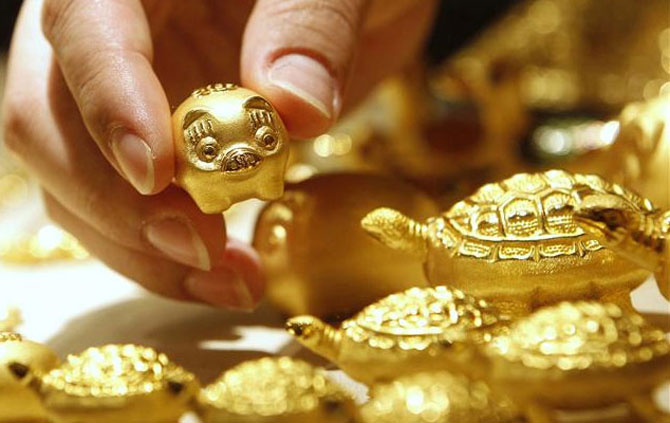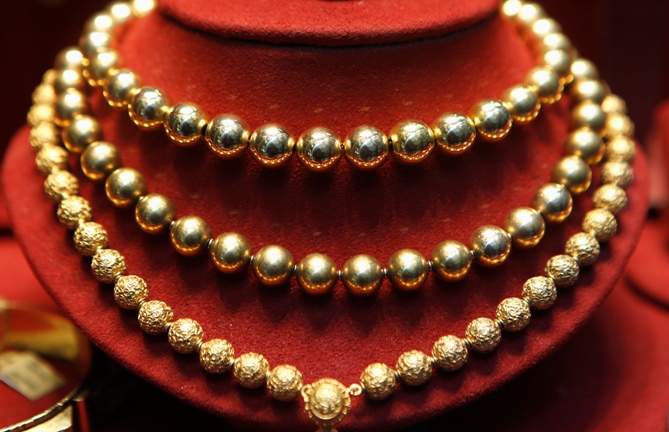 | « Back to article | Print this article |
Jewellers offering gold exchange scheme step up due diligence
Recent months have seen a steep rise in consumers coming to exchange or sell old jewellery.
While this is good news for jewellers facing a shortage in the supply of gold, it has also landed them in a quandary.
For, with gold smuggling rising, jewellers have to be sure of the source of the gold being exchanged.
“We have to be very careful.
“There are so many cases where people try to come in and sell old jewellery.
Click NEXT to read further. . .
Jewellers offering gold exchange scheme step up due diligence
“But how do you tell if the gold has been responsibly sourced?” asks a top management official at an organised jewellery retail firm.
The finance ministry’s directive to increase the import duty on gold to 10 per cent, an all-time high, has led to a big increase in the inflow of illicit gold into the country, mainly through road.
While customs officials are doing their best to check this by meticulously frisking at airports and putting up road checkpoints, some illicit material still finds its way into India and seizures are reported to have increased by about five times since last year.
Click NEXT to read further. . .
Jewellers offering gold exchange scheme step up due diligence
With the Reserve Bank of India’s recently-introduced norms on upfront payments of cash for gold and other import restrictions to control the current account deficit, gold imports virtually came to a halt in the third quarter of this calendar year.
“Promotional offers, discounts and other incentives were introduced to encourage customers to recycle gold, as manufacturers needed raw material.
“Even artisans were idle at that time,” says Haresh Soni, chairman of the All India Gems and Jewellery Trade Federation.
Hence, gold from recycled jewellery became the only source for retailers during a period that saw a supply glut.
Click NEXT to read further. . .
Jewellers offering gold exchange scheme step up due diligence
“It leads to a very dicey situation, wherein the jeweller wants the gold but also has a major problem in identifying the source of it,” Soni adds.
A part of the situation is mitigated by handing over account-payee cheques to those exchanging gold for cash worth over Rs 20,000.
That helps the jeweller get the raw material, while the onus for the gold, if smuggled, rests with the person seeking the exchange.
However, people are wary of accepting cheques, as this will come under the scanner of the income tax department.
Click NEXT to read further. . .
Jewellers offering gold exchange scheme step up due diligence
The manager of a jewellery retail firm in Bengaluru, with stores across the country, says his firm’s staff have been trained to judiciously handle customers wanting to exchange gold for cash.
“We ensure no jewellery worth above the Rs 20,000-limit is exchanged for cash.
“We also cross-check the customer in our database to see if we have transacted with him or her earlier.
“That gives us some comfort during the dealing.”
While this is the case with organised jewellery chains across the country, the unorganised sector is less guarded.
“Major jewellery retail players in the organised sector have been very careful and they generally avoid such dubious transactions.
“However, smaller players often go by their comfort level with the individual with the gold,” says Soni.
However, everyone is alert as aware of the legal issues they will have to face if they deal with smuggled gold, he adds.





